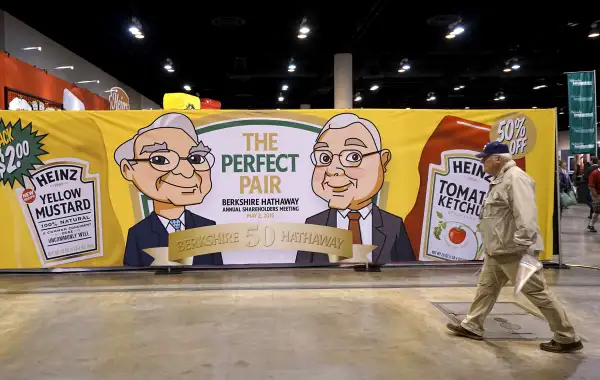Is Warren Buffett Still a Bargain Hunter?
Money is not a client of any investment adviser featured on this page. The information provided on this page is for educational purposes only and is not intended as investment advice. Money does not offer advisory services.

If you were to ask a random kindergartner to name a value investor, she’d probably respond, “Warren Buffett. Everybody knows that.”
Yet the valuations on some of the stocks Buffett bought or added to during the third quarter would make most traditional value investors cringe.
Consider Axalta Coating Systems , which makes automobile finishes and other coatings.
Berkshire Hathaway, the holding company Buffett runs, bought an 8.7% stake in the company from The Carlyle Group. Another cheap stock scooped up by the Oracle of Omaha? Not exactly. Axalta sells for a whopping 130 times its past 12 months of earnings and sports a price/earnings ratio of 22 based on future estimated profits.
To put that in perspective, the P/E ratio for the broad market is about 22 based on trailing 12 month earnings and 17 based on projected profits. If you compare Axalta to its industry peers, it's still relatively expensive. The forward P/E for the S&P Composite 1500 specialty chemicals index is less than 21.
On paper, this would hardly seem like a stock that a vaunted bargain hunter would gravitate to. Yet Axalta isn't the only example. Three others recent Buffett picks would make a value investor’s eye twitch:
• Suncor Energy . This integrated oil and gas producer is now trading at 577 times its past 12 months of earnings and 25.9 times estimated profits.
• Charter Communications . The cable and internet service provider has no current profits and trades for 256.4 times forward earnings.
• The Kraft Heinz Co. . Shares of the food and beverage giant sell for a P/E of 105 based on trailing profits and 22.1 based on forecasted earnings.
Buffett also has some unusual bedfellows in some of these stocks.
Some of the largest owners of Axalta, for example, are dyed-in-the-wool growth funds such as Prudential Jennison Mid-Cap Growth and Goldman Sachs Growth Opportunities. Fidelity Contrafund, a large growth fund, has goosed up its position in Charter Communications by 6.6% since its last portfolio report, according to Morningstar.
To be fair, other value managers are walking a similar path. T. Rowe Price Value recently started buying Suncor, and Kraft Heintz is part of the secret sauce in the Vanguard Wellesley Income fund.
What’s going on?
Well, chalk it up to Buffett's take on value investing. In his 1989 letter to Berkshire Hathaway shareholders, he spelled out his personal philosophy to bargain hunting that doesn't fit the textbook definition of value. He noted, for instance, that while there's a "cigar butt" school to value investing, he doesn't adhere to it.
As he wrote:
A cigar butt found on the street that has only one puff left in it may not offer much of a smoke, but the "bargain purchase" will make that puff all profit. Unless you are a liquidator, that kind of approach to buying businesses is foolish. First, the original "bargain" price probably will not turn out to be such a steal after all. In a difficult business, no sooner is one problem solved than another surfaces — never is there just one cockroach in the kitchen.
He went on to note that "it's far better to buy a wonderful company at a fair price than a fair company at a wonderful price."
In the case of Axalta, he’s increasing his bullish bet on the automotive industry: The company gets 60% of its profits from automotive refinishing. This might explain why Axalta's earnings are expected to grow three times faster than profits for the specialty chemical industry, according to estimates tracked by Bloomberg.
With Kraft Heinz, Buffett is getting a portion of the third-largest food company in North America.
Buffett may also be taking a page from a growth investor’s book by looking at temporarily depressed earnings, rather than simply price. There are two ways to get a lower PE ratio: Decreasing price or increasing earnings.
The forward PE ratios on all these companies are sharply lower than the trailing PE ratios. While those forward PEs are still high by a value manager’s lights, increased profits could make the stock look cheaper in coming years.
Read Next: Warren Buffett's 25 Secrets to Success
